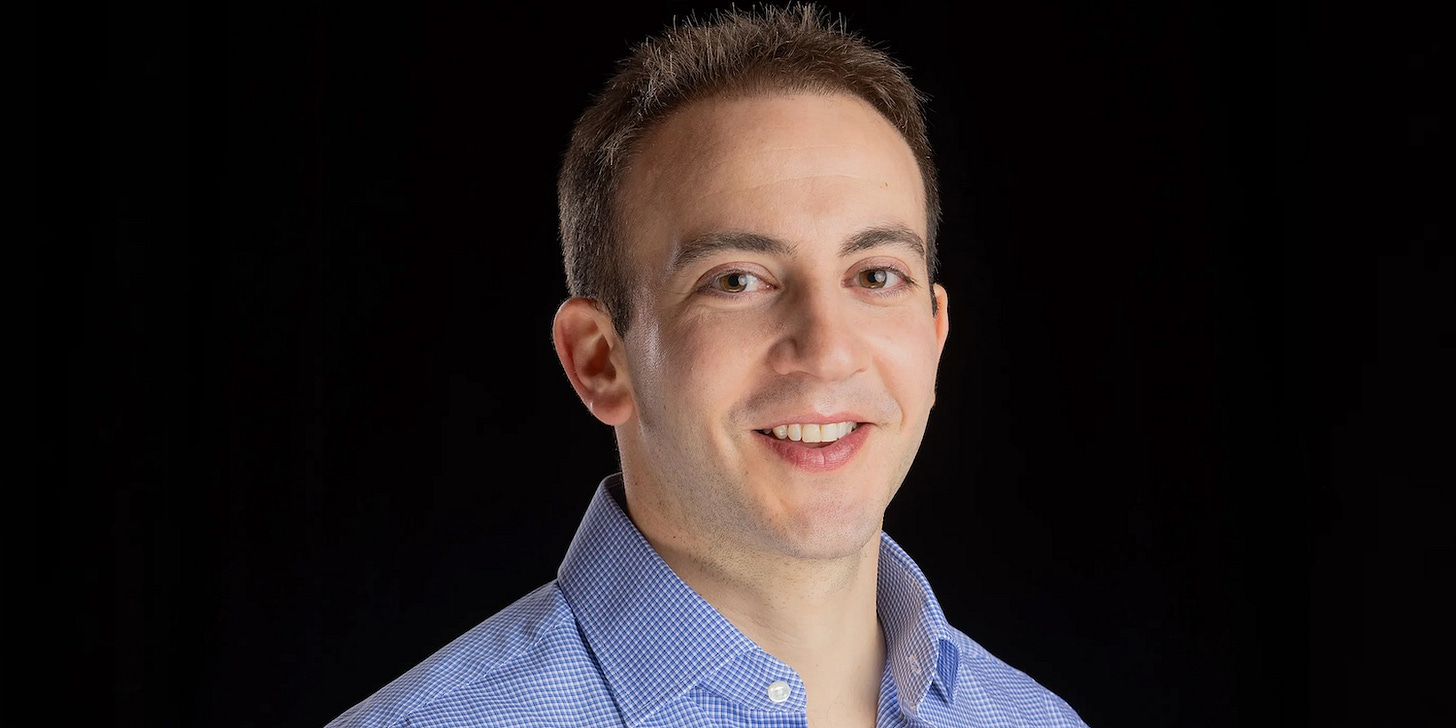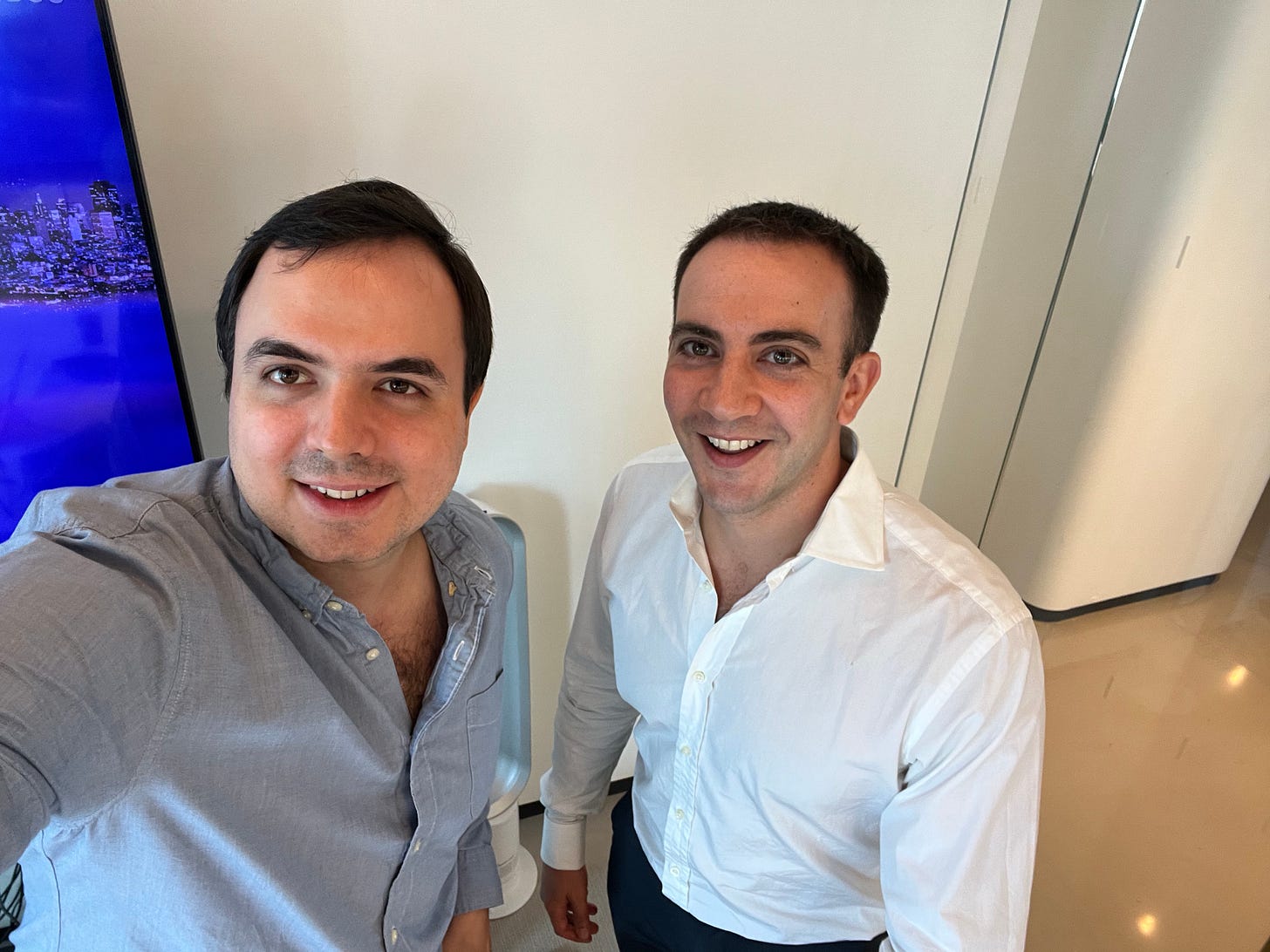This article is part of Fintech Leaders, a newsletter with almost 70,000 builders, entrepreneurs, investors, regulators, and students of financial services. I invite you to share and sign up! Also, if you enjoy this conversation, please consider leaving a review on Apple Podcasts or Spotify so more people can learn about us.
Michael Tannenbaum is the CEO of Figure, one of the largest US fintech platforms building infrastructure and embedded products. Founded in 2018 by Mike Cagney, also the founder of SoFi and past guest of the show, Figure is now the largest non-bank originator of Home Equity Lines of Credit in the US having done $11 billion in AAA securitizations.
I stopped by Figure’s NYC offices for an in-depth conversation and Michael didn’t disappoint. Every time I talk to him, I’m impressed by his clarity of thought and skill in sharing valuable insights. He was previously COO of Brex and you can check out our 2023 Fintech Leaders episode for an in-depth conversation about his time there.
In this episode, we discuss:
Bringing fresh energy and founder mode, even as a non-founder CEO
“This adage of hire good people and get out of the way... It just doesn't work.”
Founder Mode vs Manager Mode has been “the current thing” in the tech world and Twitter over the last couple of weeks. I found Michael to be an excellent person to talk about this, since he’s not the founder of Figure, but certainly brings founder energy and is one of the most entrepreneurial people you’ll ever meet.
He definitely challenges the conventional wisdom of “hiring great people and getting out of the way” – if this was true, building a great company would be much easier! The reality is that founders or CEOs must remain deeply involved in the business, as they often bring the highest level of expertise and context within the company, making their direct engagement more efficient than delegation in certain cases. He also agrees Founders / CEOs meeting with employees across multiple layers of the organization can be a more effective use of time and resources since filtering decisions through other leaders can dilute alignment.
The importance of organizational design and aligned priorities for a company’s success
“Identifying a set of big of goals that people have in the company, and clarifying what those are and not having them change, means that everybody can be focused on what matters.”
One of Tannenbaum’s core strengths is organizational design. Over the last decade he’s been a core part of building Brex and SoFi and he’s seen or led the creation and expansion of multiple divisions across fast growing fintechs. He knows what works and what doesn’t. Critically, he shares it’s absolutely crucial to align leadership with a unified message containing a small number (4-5) of common goals to keep the entire company focused.
Borrowing from a concept perfected at Youtube, he champions the "big rocks" framework—OKR-like goals that remain consistent across quarters. By crystallizing these four to five priorities, company leaders ensure that every team member remains focused on what truly matters, minimizing distractions from misaligned projects or initiatives. At Figure, Tannenbaum has introduced bi-weekly meetings and dedicated Slack channels to promote collaboration and track progress against company goals. With a team of 400 employees, he recognizes that clear, consistent communication is essential to maintaining alignment, particularly in a distributed work environment with multiple offices across the US.
How Blockchain helps Figure provide “Truth over Trust” to reduce transaction and origination costs
“We use this phrase “Truth over Trust”, which means, the value of blockchain is you actually don't need to trust.”
Blockchain technology enables Figure to eliminate the need for traditional trust in financial services by providing immutable, verifiable data. Instead of relying on trusted institutions (like JPM or AmEx), blockchain guarantees truth, ensuring that once data is validated at the time of origination, it doesn't need to be rechecked, reducing reliance on legacy institutions. This has allowed the company to significantly cut down both time and costs in the origination and distribution of HELOCs.
Blockchain provides the ability to streamline the movement of loans through capital markets. Traditionally, every time a loan changes hands, an independent third-party review is required, adding layers of cost and inefficiency. With Figure’s blockchain-based system, loans are validated once at origination, saving investors and partners substantial amounts on third-party reviews as the loan moves through the capital markets.
Why standardization is crucial to enable embedded finance services at scale… and a lot more!
“If you want an easy life, don't be in Fintech.”
There’s been a lot of talk about Embedded Finance from VCs and Founders, and without a doubt, this will be a core part of the future of fintech. Embedded is also important for Figure, but what’s a core requirement for it to work? According to Michael, it’s the power of standardization. Without it, offering customized solutions to each partner erodes the efficiency and scalability of embedded fintech. By establishing a standardized process, Figure is now aggregating volume and delivering more pricing benefits in the HELOC space.
He compares Figure’s approach to the success of Fannie Mae and Freddie Mac in the U.S. mortgage market, where standardization has enabled vast liquidity and smooth market operations. Figure’s efforts to standardize non-agency credit could replicate this model, transforming the liquidity and efficiency of other financial products in the private credit space.
Want more podcast episodes? Join me and follow Fintech Leaders today on Apple, Spotify, or your favorite podcast app for weekly conversations with today’s global leaders that will dominate the 21st century in fintech, business, and beyond.



























Share this post